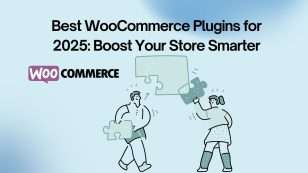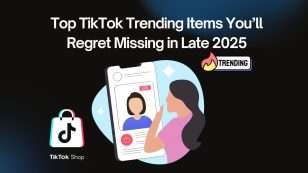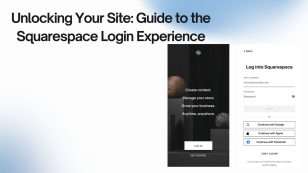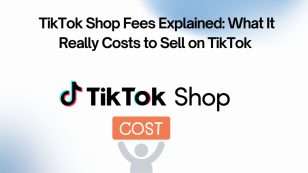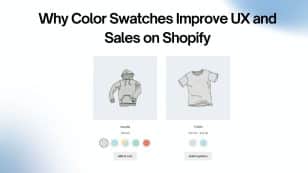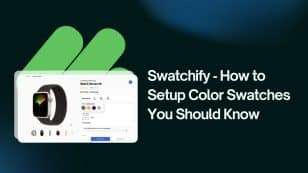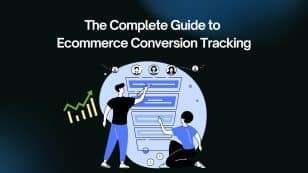In today’s digital-first world, affiliate and influencer marketing have become essential strategies for growing a successful Shopify store. From product discovery to purchase, shoppers trust real voices—creators, customers, and community members. But managing campaigns manually can be overwhelming. That’s why Shopify store owners are turning to powerful tools that automate tracking, manage payouts, and streamline partnerships. Whether you’re launching your first influencer collaboration or scaling a full affiliate program, the right tools can help you grow smarter and faster. In this guide, we’ll explore the best affiliate and influencer tools tailored specifically for Shopify merchants.
Why Use Affiliate and Influencer Tools for Shopify?
You’ve probably worked with a few creators on Instagram or sent out a referral code to your customers. That’s a great start—but to truly harness the power of influencer and affiliate marketing, you need tools that scale.
Here’s why:
- Automation Saves Time and Headaches: No more chasing down creators for content, manually logging sales, or calculating commissions in Excel. These tools handle everything from onboarding to payout.
- Data-Driven Decisions: Want to know which influencer brought in the most revenue last quarter? Or which affiliate has the best conversion rate? Tools with real-time analytics give you the insight you need to optimize campaigns.
- Seamless Integration with Shopify: Most of these platforms plug directly into your Shopify dashboard. That means faster setup, smoother operations, and fewer technical hiccups.
- Trust and Transparency: Creators and affiliates want to work with brands that offer clear, fair, and trackable systems. Tools help you build credibility and long-term relationships.
In short, using the right influencer or affiliate tool doesn’t just make your life easier—it gives your brand a professional edge and increases your ROI. And the best part? Whether you’re just starting or running an established store, there’s a tool that fits your needs.
Top 3 Best Influencer Marketing Tools for Shopify
Looking to grow your Shopify store through influencer marketing? The right tool can make all the difference. Whether you’re aiming to boost brand awareness or drive direct sales, these top 3 influencer marketing tools are designed to help you connect with the right creators, track real results, and scale your campaigns with ease.
- Upfluence
Upfluence is a comprehensive influencer and affiliate marketing platform designed to help Shopify merchants discover, manage, and scale creator partnerships with ease. What sets it apart is its ability to turn your own customers into influencers—by analyzing Shopify data, it identifies buyers with strong social followings you can instantly connect with.
Key Features:
- AI-Powered Influencer Discovery: Search and filter through a vast database of influencers across platforms like Instagram, TikTok, YouTube, and more, using criteria such as niche, audience demographics, and engagement metrics.
- Shopify Integration: Seamlessly integrates with your Shopify store to identify and leverage existing customers who have significant social media influence.
- Campaign Management: Manage end-to-end influencer campaigns, including outreach, contract management, content approval, and performance tracking.
- Affiliate Program Management: Create and manage affiliate programs with features like unique promo code generation, sales tracking, and automated commission payouts.
- Analytics and Reporting: Access real-time dashboards to monitor campaign performance, ROI, and influencer effectiveness.
Pros:
- Comprehensive Platform: Combines influencer discovery, campaign management, and affiliate program management in one tool.
- Deep Shopify Integration: Leverages existing customer data to identify potential influencers, enhancing authenticity and engagement.
- Scalable Solutions: Suitable for businesses of various sizes, from startups to large enterprises.
Cons:
- Learning Curve: The platform’s extensive features may require time to learn and utilize effectively.
- Pricing Transparency: Detailed pricing information is not readily available on the website; potential users need to contact sales for customized quotes.
Pricing Plans:
Upfluence offers three main pricing tiers, each designed to cater to different business needs. All plans require a 12-month commitment and include full access to the platform’s features:
- Growth Plan: Priced at $11,940 per year, this plan includes 1 user seat and access to a community of 5,000 influencers.
- Scale Plan: At $19,800 per year, this plan offers 5 user seats and access to 10,000 influencers, along with premium support.
- Enterprise Plan: For $42,600 per year, businesses receive 25 user seats, access to 20,000 influencers, and premium support.
Note: Pricing details are based on information available from the AWS Marketplace and may vary; it’s recommended to contact Upfluence directly for the most current and customized pricing.
Best For: Medium to large Shopify stores aiming to build and scale influencer and affiliate marketing programs with a data-driven approach. Ideal for businesses seeking an all-in-one platform that integrates seamlessly with Shopify to leverage existing customer relationships and drive sales through influencer collaborations.
- Collabstr
Collabstr is a user-friendly influencer marketplace that connects Shopify store owners with pre-vetted creators on platforms like Instagram, TikTok, and YouTube. Designed for speed and simplicity, it allows you to browse influencer profiles, check their pricing upfront, and book collaborations in just a few clicks—no outreach emails or agencies required.
It’s particularly useful for Shopify merchants looking for short-term promotions or wanting to test influencer marketing without investing in long-term software or contracts.
Key Features:
- Public influencer marketplace with pricing listed transparently
- Categories for TikTok, Instagram, YouTube, UGC (user-generated content), and more
- Built-in messaging and collaboration tracking
- Secure payments through the platform (money is held until work is completed)
- No monthly subscription required for brands
Pros:
- Extremely beginner-friendly—perfect for Shopify stores just starting out
- Transparent pricing helps avoid negotiation hassles
- No long-term commitment or upfront cost
- Large and active network of creators
- Easy access to user-generated content packages
Cons:
- Limited campaign automation or tracking features compared to full-suite platforms
- Not ideal for scaling large influencer programs
- Less control over advanced campaign metrics or affiliate integration
Pricing Plan:
- Free for brands to browse and post listings
- You only pay when you book an influencer (no monthly fee)
- Collabstr charges a 15% service fee on top of the creator’s listed price
- Optional: Brands can pay for premium placement in influencer searches
Best For: Small to medium Shopify stores or solo entrepreneurs who want to quickly test influencer marketing without committing to expensive platforms. Ideal for one-off campaigns, seasonal product pushes, or generating UGC content.
- Influencity
Influencity is a powerful influencer marketing platform that gives Shopify merchants the ability to discover, analyze, and manage influencers with incredible precision. Built for marketers who prioritize data and analytics, it’s ideal for brands that want to make informed, ROI-driven decisions instead of guessing which influencer might perform best.
From fake follower detection to detailed audience insights, Influencity helps you find the right influencers—not just the most popular ones.
Key Features:
- Search across millions of influencer profiles by audience age, location, interests, and more
- Audience credibility scores to spot fake followers or inflated engagement
- Instagram, TikTok, and YouTube support
- Compare multiple influencers side-by-side before committing
- Performance tracking dashboards for each campaign
Pros:
- Extremely detailed influencer vetting—ideal for avoiding “bad fits”
- Great for global brands (filters by country and language)
- Side-by-side influencer comparisons save decision-making time
- Helps optimize spend with trustworthy data
Cons:
- More complex interface—may feel overwhelming for beginners
- No built-in affiliate management features
- Limited direct Shopify integration (compared to native tools like Dovetale)
Pricing Plan:
- Basic Plan: Starts at $168/month, includes up to 500 influencer reports
- Professional Plan: From $348/month, adds more users, reports, and collaboration tools
- Business Plan: Custom pricing for large teams and advanced analytics
- Free trial available, no credit card required
Best For: Medium to large Shopify businesses, agencies, or data-driven marketing teams looking to optimize influencer ROI and prevent fraud. Perfect for brands expanding into international markets or niche audiences.
Tips to Maximize Success with Influencer & Affiliate Tools
Choosing the right tool is only half the equation—how you use it determines your success. Here are five practical tips to help you get the most out of your influencer and affiliate marketing efforts:
- Match the tool to your current growth stage: If you’re just getting started, simple marketplaces like Collabstr or GoAffPro may be more practical than advanced platforms. Bigger brands with more traffic and data might benefit from robust tools like Upfluence or Refersion.
- Set clear campaign goals: Before launching, define what success looks like: Are you aiming for brand awareness, direct conversions, or customer retention? This helps align your creators’ content and your tool’s tracking features.
- Educate your partners: Provide influencers and affiliates with product knowledge, content guidelines, and branded assets. The more support they have, the better they’ll represent your store.
- Track what matters: Don’t get distracted by likes or followers—focus on conversions, customer lifetime value (LTV), and actual sales driven.
- Test, analyze, scale: Start with small, trackable campaigns. Use your tool’s data insights to double down on what works—and pivot when something doesn’t.
With the right strategy and setup, these tools can become long-term growth engines for your Shopify brand.
Final Thoughts: Choose the Right Tool to Grow Smarter
Affiliate and influencer marketing aren’t just trends—they’re proven strategies that can drive consistent, long-term growth for your Shopify store. But to make them work at scale, you need the right tools.
Whether you’re just starting out or running a high-volume operation, there’s a tool that fits your goals, your budget, and your workflow. Platforms like Collabstr are perfect for quick wins and one-off campaigns, while solutions like Upfluence and Refersion offer advanced features for serious scaling.
Ultimately, tools are only as powerful as the strategy behind them. Focus on building real relationships, tracking performance, and staying flexible. Test. Learn. Optimize.
When done right, the right mix of tools and tactics will help your store grow smarter—not just faster.
![]()



